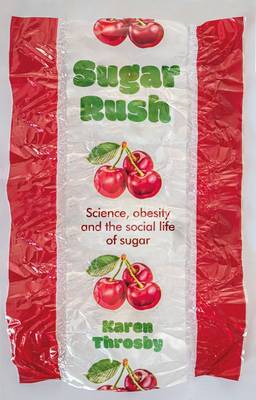
- Retrait gratuit dans votre magasin Club
- 7.000.000 titres dans notre catalogue
- Payer en toute sécurité
- Toujours un magasin près de chez vous
- Retrait gratuit dans votre magasin Club
- 7.000.000 titres dans notre catalogue
- Payer en toute sécurité
- Toujours un magasin près de chez vous
34,45 €
+ 68 points
Format
Description
In the second decade of the twenty-first century, the crusade against sugar rose to prominence as an urgent societal problem about which something needed to be done. Sugar was transformed into the common enemy in a revived 'war on obesity' levelled at 'unhealthy' foods and the people who enjoy them. Are the evils of sugar based on purely scientific fact, or are other forces at play?
Sugar rush explores the social life of sugar in its rise to infamy. The book reveals how competing understandings of the 'problem' of sugar are smoothed over through appeals to science and the demonization of fatness, with politics and popular culture preying on our anxieties about what we eat. Drawing on journalism, government policy, public health campaigns, self-help books, autobiographies and documentaries, the book argues that this rush to blame sugar is a phenomenon of its time, finding fertile ground in the era of austerity and its attendant inequalities. Inviting readers to resist the comforting certainties of the attack on sugar, Sugar rush shows how this actually represents a politics of despair, entrenching rather than disrupting the inequality-riddled status quo.Spécifications
Parties prenantes
- Auteur(s) :
- Editeur:
Contenu
- Nombre de pages :
- 304
- Langue:
- Anglais
- Collection :
- Tome:
- n° 3
Caractéristiques
- EAN:
- 9781526151551
- Date de parution :
- 20-06-23
- Format:
- Livre broché
- Format numérique:
- Trade paperback (VS)
- Dimensions :
- 137 mm x 211 mm
- Poids :
- 498 g







